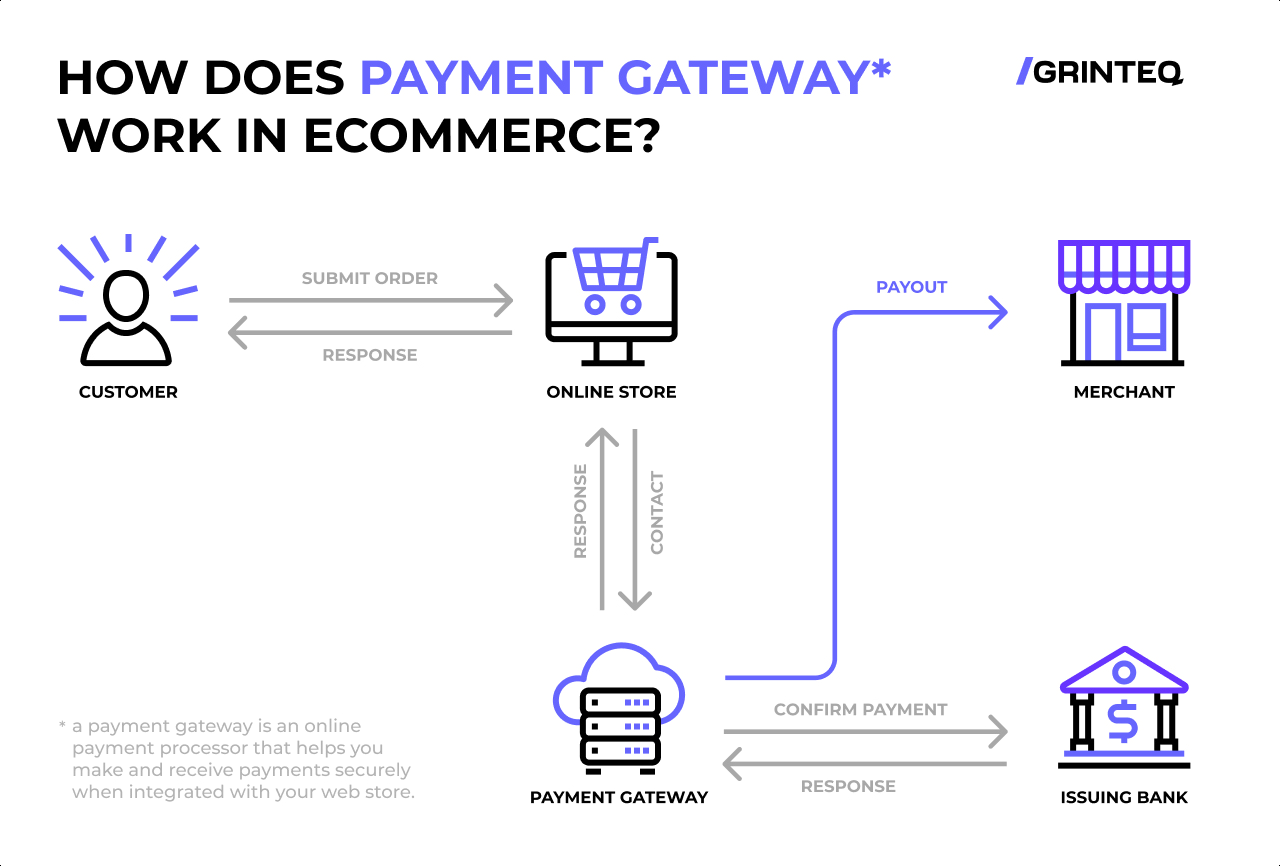The Best Payment Gateways for eCommerce Stores – A Comprehensive Comparison
Introduction
Choosing the right payment gateway is crucial for eCommerce success. This guide provides a comprehensive comparison of the top payment gateways in 2025, analyzing their features, pricing, security, and suitability for different business types.
1. What is a Payment Gateway?
A payment gateway is a technology that facilitates online transactions by securely processing payments between customers and merchants. It acts as a bridge between an eCommerce store, the customer’s bank, and the merchant’s bank.
Key Functions of a Payment Gateway
- Securely encrypts payment data
- Facilitates credit/debit card processing
- Integrates with eCommerce platforms
- Provides fraud protection
- Supports multiple currencies and payment methods
2. Factors to Consider When Choosing a Payment Gateway
Security & Compliance
- PCI-DSS compliance
- Tokenization and encryption
- Fraud detection tools
Transaction Fees
- Setup and monthly fees
- Per-transaction costs
- Currency conversion fees
Integration & Compatibility
- eCommerce platform support
- API flexibility for custom integrations
- Compatibility with digital wallets
Payment Methods
- Credit/debit cards
- Digital wallets (Apple Pay, Google Pay, PayPal)
- Cryptocurrency support
- Buy Now, Pay Later (BNPL) options
User Experience
- One-click checkout
- Mobile payment optimization
- Multi-language and multi-currency support
3. Top Payment Gateways for eCommerce in 2025
Comparison Table
| Payment Gateway | Best For | Transaction Fees | Supported Payment Methods | Key Features |
|---|---|---|---|---|
| Stripe | Developers & Large Businesses | 2.9% + $0.30 per transaction | Cards, wallets, BNPL, crypto | Customizable API, fraud prevention |
| PayPal | Small-Medium Businesses | 3.49% + $0.49 per transaction | Cards, PayPal, Venmo | Easy integration, global reach |
| Square | Brick-and-Mortar & Online Stores | 2.6% + $0.10 per transaction | Cards, wallets | POS system, invoicing support |
| Authorize.Net | Enterprise Businesses | 2.9% + $0.30 per transaction + $25 monthly fee | Cards, wallets, eChecks | Advanced security, subscription billing |
| Adyen | Global eCommerce | Custom pricing | Cards, wallets, BNPL, crypto | AI-driven fraud protection, global payments |
| 2Checkout (now Verifone) | International Sellers | 3.5% + $0.35 per transaction | Cards, wallets | Multi-currency support, subscription billing |
| Braintree (by PayPal) | Subscription Businesses | 2.9% + $0.30 per transaction | Cards, wallets, Venmo, PayPal | Advanced customization, recurring billing |
| Klarna | BNPL Services | Merchant-specific pricing | BNPL, credit/debit cards | Interest-free installment payments |
| Amazon Pay | Amazon Sellers & Large Retailers | 2.9% + $0.30 per transaction | Amazon accounts, cards | Seamless Amazon checkout |
| Worldpay | Large Enterprises | Custom pricing | Cards, wallets, ACH | Global payment solutions, strong security |
4. Detailed Analysis of Each Payment Gateway
Stripe: The Developer’s Choice
Pros:
- Extensive API for customization
- Supports subscriptions and recurring payments
- High-level fraud detection
Cons:
- Requires technical knowledge for full customization
- Customer support can be slow
PayPal: Best for Quick Setup
Pros:
- Global reach and trusted brand
- Easy to integrate with major eCommerce platforms
- Supports multiple payment methods
Cons:
- Higher transaction fees
- Account holds and freezes reported by some users
Square: Best for Small Retailers
Pros:
- Free POS system for in-store sales
- Flat-rate pricing with no hidden fees
- Invoicing and online payment links
Cons:
- Limited international support
- Higher fees for manual card entry
Authorize.Net: Best for Enterprises
Pros:
- Robust security features
- Supports multiple payment methods
- Advanced recurring billing options
Cons:
- Monthly fees make it less cost-effective for small businesses
- Outdated interface compared to competitors
Klarna: Best Buy Now, Pay Later Option
Pros:
- Interest-free installment plans
- Helps increase conversion rates
- Popular among younger consumers
Cons:
- Higher merchant fees compared to traditional gateways
- Limited availability in some regions
5. Choosing the Right Payment Gateway for Your Business
Best Payment Gateway for:
| Business Type | Recommended Gateway |
| Small Businesses | PayPal, Square |
| Large Enterprises | Stripe, Adyen, Authorize.Net |
| Subscription-Based Services | Braintree, Stripe |
| High-Risk Industries | 2Checkout, Worldpay |
| International Businesses | Adyen, 2Checkout |
| Retail & POS Integration | Square, Worldpay |
Questions to Ask Before Choosing
- Does it support my target audience’s preferred payment methods?
- What are the transaction and hidden fees?
- Is it compatible with my eCommerce platform?
- How strong are its security features?
- Can it scale as my business grows?
6. Future Trends in Payment Gateways
AI and Machine Learning in Fraud Prevention
- Real-time threat detection
- AI-powered transaction monitoring
Cryptocurrency and Blockchain Payments
- More businesses accepting Bitcoin and Ethereum
- Decentralized finance (DeFi) integration
Expansion of BNPL Services
- Increased demand for flexible payment options
- Partnerships with major retailers
Biometric Payment Authentication
- Fingerprint and facial recognition for secure transactions
- Improved checkout experiences on mobile devices
Conclusion
Selecting the best payment gateway for your eCommerce store is crucial to ensuring a seamless customer experience and secure transactions. Whether you’re a small business, an enterprise, or a subscription-based service, the right payment gateway can improve your conversion rates and customer satisfaction.


